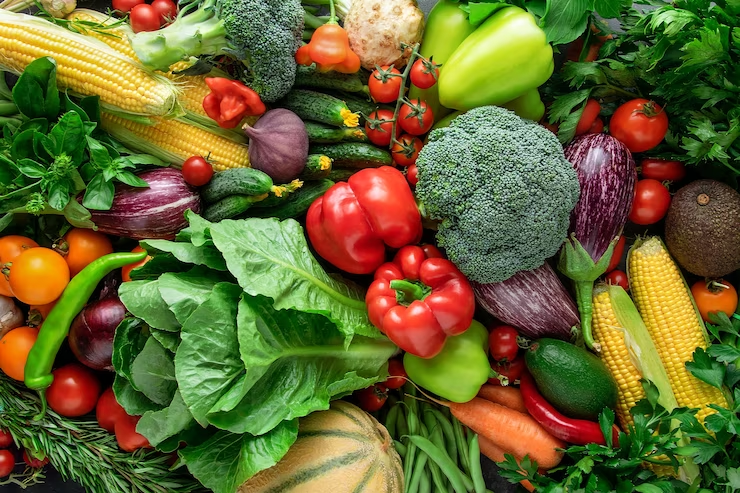
Introduction
In today’s fast-paced world, maintaining a healthy diet is more crucial than ever. One of the simplest and most effective ways to achieve this is by incorporating more vegetables into your daily meals. The importance of eating vegetables cannot be overstated. Packed with essential nutrients, vegetables offer a myriad of health benefits that contribute to overall well-being. This article explores the importance of eating vegetables is vital, how it enhances your health, and practical ways to include them in your diet.
Nutrient Powerhouses
Rich in Vitamins and Minerals
Vegetables are rich in vitamins and minerals, which are essential for maintaining good health. For instance, leafy greens like spinach and kale are loaded with vitamins A, C, and K, which support immune function, skin health, and bone strength. Carrots, famous for their vibrant color, are a great source of vitamin A, crucial for vision and immune health. By eating a variety of vegetables, you ensure that your body gets a wide range of essential nutrients.
High in Fiber
Fiber is another critical nutrient found abundantly in vegetables. Fiber aids in digestion, helps maintain a healthy weight, and lowers the risk of chronic diseases such as diabetes and heart disease. Vegetables like broccoli, Brussels sprouts, and peas are excellent sources of fiber. Consuming enough fiber keeps your digestive system running smoothly and helps you feel full, reducing the likelihood of overeating.
Disease Prevention
Reducing Chronic Disease Risk
Regular consumption of vegetables plays a significant role in reducing the risk of chronic diseases. Vegetables contain antioxidants and phytochemicals that combat inflammation and protect cells from damage. For example, tomatoes are rich in lycopene, an antioxidant linked to lower risks of heart disease and certain cancers. Cruciferous vegetables, such as cauliflower and cabbage, contain compounds that may help protect against cancer.
Supporting Heart Health
Heart disease remains a leading cause of death worldwide, but eating vegetables can significantly lower this risk. Vegetables like spinach and Swiss chard are high in potassium, which helps regulate blood pressure. Additionally, the fiber in vegetables reduces cholesterol levels, promoting heart health. By making vegetables a staple in your diet, you can take proactive steps to protect your heart.
Weight Management
Low in Calories, High in Nutrients
One of the key benefits of eating vegetables is their low-calorie content. Unlike high-calorie processed foods, vegetables provide essential nutrients without adding excessive calories. This makes them an excellent choice for those looking to maintain or lose weight. By filling your plate with vegetables, you can enjoy satisfying, nutrient-dense meals that help you stay within your calorie goals.
Enhancing Satiety
Vegetables help enhance satiety, making you feel fuller for longer. This is due to their high water and fiber content. For instance, a salad with a variety of vegetables can be very filling, helping you avoid unhealthy snacks between meals. By prioritizing vegetables, you can control hunger and support your weight management efforts.
Practical Tips for Including Vegetables
Make Vegetables a Staple
To reap the benefits of eating vegetables, make them a staple in your diet. Aim to fill half your plate with vegetables at each meal. This ensures that you get a variety of nutrients and keeps your meals interesting and flavorful. Incorporate vegetables into dishes like stir-fries, soups, and casseroles to boost their nutritional value.
Experiment with Cooking Methods
Explore different cooking methods to make vegetables more appealing. Roasting, grilling, and steaming can bring out unique flavors and textures. For example, roasting vegetables like Brussels sprouts and sweet potatoes can enhance their natural sweetness, making them more enjoyable. Experimenting with herbs and spices can also add new dimensions to your vegetable dishes.
Conclusion
The importance of eating vegetables cannot be emphasized enough. They are nutrient powerhouses that provide essential vitamins, minerals, and fiber. Regularly consuming vegetables helps prevent chronic diseases, supports heart health, and aids in weight management. By making vegetables a central part of your diet and exploring various ways to prepare them, you can enjoy delicious meals that contribute to your overall health. Embrace the power of vegetables and take a significant step towards a healthier, more vibrant life.
